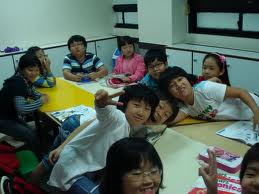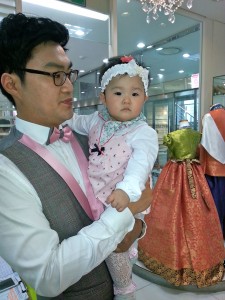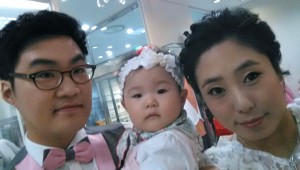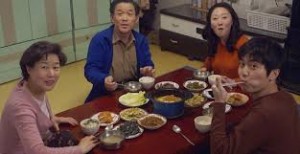This weeks topic comes from a Dear Reader named Pam, who asks KiK about family life in Korea and how it compares to Indian culture; a part of her heritage. She writes:
“I’ve always loved exploring the west and east and how vastly different they are. For example, in India when you marry you don’t move away from your parents and family, you all move in together. Once I asked my aunt why that is and she explained that family is of utmost importance in India. You respect and care for your elders and sisters and brothers when you marry. They are your blood, they will be there through thick and thin. Why would you want to be away from that? I wonder if South Korea differs? Do they value community and family like India? Do they value individual prosperity and independence like westerners? Or is South Korea somewhere in the middle?”
I will gladly do my best to quench your thirst for knowledge my friend! The family unit definitely dominates many aspects of Korean life. Although the younger generations are altering this structure and slowly becoming more westernized, the original eastern architecture still holds up for the most part. Every member plays a role in this, so allow me to explain.
Young Children: Seen as cute little rug rats until around grade 3. It’s around this time that they start to study at hogwons, also known as after school academies. If the parents can afford it, most kids are sent to private academies after regular school hours to study whatever subject their parents think they should. It may be English, math, music or some kind of martial arts class. The more money the parents have, the more academies their child will most likely attend. The math and English academies are especially important because of the fierce competition for entering the top high schools and universities later in life. Due to such a large population density in such a small country, there are only so many spots available each year, driving competition through the roof.
Older Children: Academy life intensifies. It’s rare for teens to have a part-time job unless it’s summer or winter vacation. Middle school students (grades 7-9 in western terms) study in school and after school to prepare for their high school entrance exams. Students in Korea must apply to their future high school based on their entrance exam scores, so if they score low, they’ll have to go to a lower ranked high school. This is why none of the teens in Korea have jobs during the school year. They are training to become professional students and their job is to study full-time, usually more intensely from their second year of middle school and onwards.
Moving out on your own doesn’t happen either, unless you’re finished university and can afford it with your new job. Otherwise, most kids stay home until marriage and even then they often move in with their parents or in-laws post-marriage. More on that in a moment.
Dads: Fathers these days are still seen as the man of the house, the bread winner and the money maker. In the last 25 years, I’ve been told that more fathers seem to be involved in their children’s lives and more enthusiastic about being there for everyday child-rearing. In the past, the father often worked long hours to support the family on a single income and came home to eat, shower and rest for the next day. With more double income families sprouting up, less pressure is put on the father to work so much, leading to more time and participation with the children.
Moms: Mothers are usually the house manager. They control the house affairs, including the money, managing bills and maintenance, while raising the children too. Nowadays more mothers work outside the home, if even part-time, so grandparents help out, but 20+ years ago that would never be the case. Mom would be at home full-time, most likely living in her in-law’s home, getting daily help/instructions from her mother-in-law on child care and life management skills.
Grandmothers: Grandmothers are in charge of the entire universe. This lady runs her family and usually (to some degree) her child’s family too. It seems that once you’ve raised a family and have stuck around for the era of grandchildren, you’ve reached the “untouchable” stage in Korean life where you become exempt from every rule ever made. This variation of a grandmother is affectionately referred to as an “ajuma,” which technically means “married woman with children” but has extended its meaning to include this tornado of a woman in her later years.
The ajuma will sit, stand or just stop walking wherever she likes and will physically shove you out of the way with her ungodly ajuma strength when needed, which is often and usually on public transit. This is the woman who purposely finds miss-matched patterned pants and tops to wear, complete with 4-inch wedge sandals and a sun visor that spans at least 12 inches around her head. She is often seen telling random strangers what to do and cursing at the inefficiencies of everyday life around her. That being said, she is also the woman who managed to get her children through school, taught them how to cook and pretty much ensured her entire family’s survival thus far. She also most likely played a big role in how her grandkids grew up, so she’s been keeping things in order for ages. You can see why these grandmas are untouchable.

A Korean-American girl I met on the zombie walk last halloween. She was dressed as a zombie ajuma. The wardrobe is spot on!

Another ajuma zombie walker I met last halloween. I don’t know where he got those pants but with the little shoestring backpack thrown in, he nailed it. Aside from the face paint, there is no exaggeration in either of these pictures.
Grandfathers: I haven’t heard as many stories on the grandfather figure in the family so he won’t sound as zany as grandma, but he’s still there and his presence is strong. From what my Korean friends tell me, their grandfathers are the last of the old generation who fought in the Korean war in the 1950s. These men are often noted as the strong, silent type who have seen so much change since there time as young men that they’ve just washed their hands of the new, evolving Korea and enjoy the simple things in life. They contribute to each family’s structure by being the original provider in the family and having the biggest job of being the backbone of the family’s morals and values. These are the men who lived through the days of hunger and strife and are now content to enjoy their grandchildren and spend time with their peers. It also helps that their wives are running things like a naval officer so they don’t have much to worry about any more!
The Shift: These days, some newlyweds still opt to live with the husband’s parents but it’s becoming less popular as the younger generations reach marrying age and strive for independence. If they do move in with the in-laws, the wife is often shifted into a more subservient role of semi-caretaker to the husband’s parents. She may still manage her spouse’s money and home affairs, but it’s often under the scrutinizing supervision of the mother-in-law. There are many dramas and movies about life with the in-laws in every culture and Korea is no different. Of course not all in-laws are horrible, but often times in Korea, the new wife is at the mercy of her mother-in-law which makes for a stressful beginning to married life. As a result, newlyweds these days are more likely to put a down-payment on an apartment of their own from the start or perhaps live with the in-laws for only the first year to save money.
It’s also becoming more common to enter a marriage with someone who already has their own place and their partner simply moves in after the wedding. That way is considered very modern and western and becoming more desirable to young newlyweds. That being said, my friend tells me there is a saying in Korea: “You’re not marrying only one person, you’re marrying a whole family.” I believe this is true in all nations, but in a rapidly changing South Korea, it proves that the core values of honouring your family are still deeply embedded in their hearts and minds.
I hope that helped to answer your question Pam. If anyone else would like to suggest a discussion topic, feel free to comment below or post a message on my facebook page here. Ben, your request for how to find a trustworthy dentist is in the works. Until next time, be well Dear Readers.




















